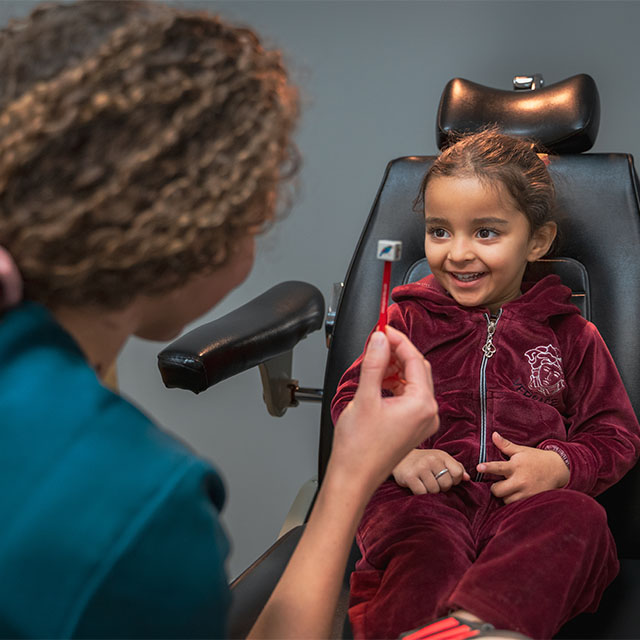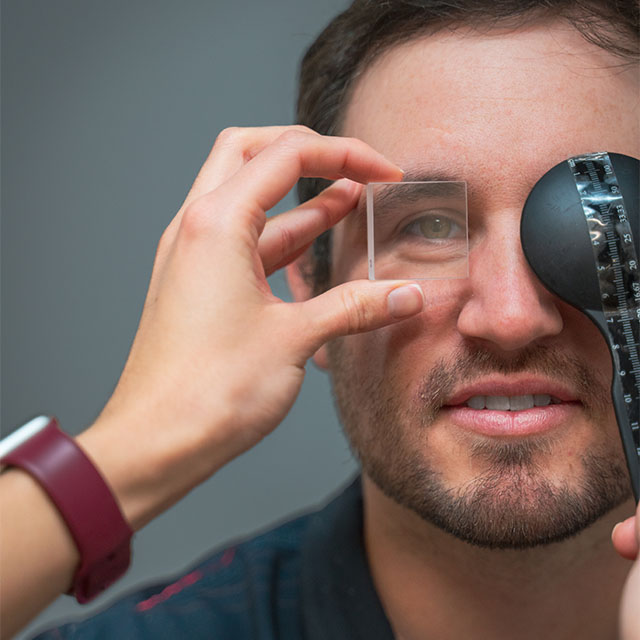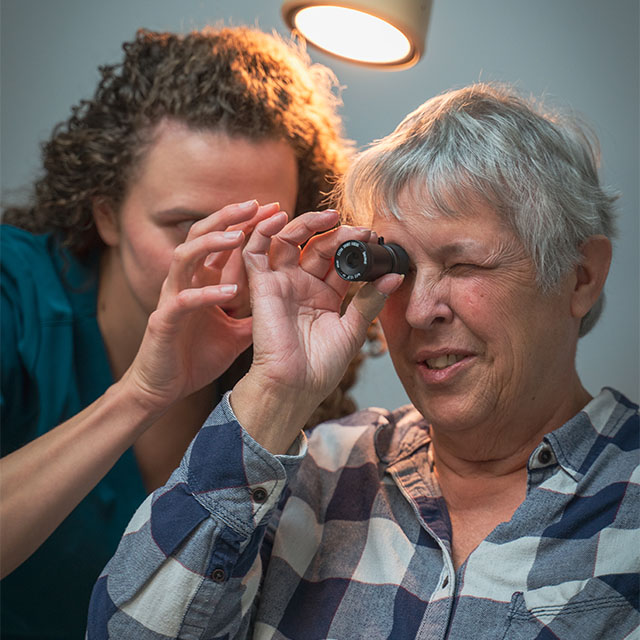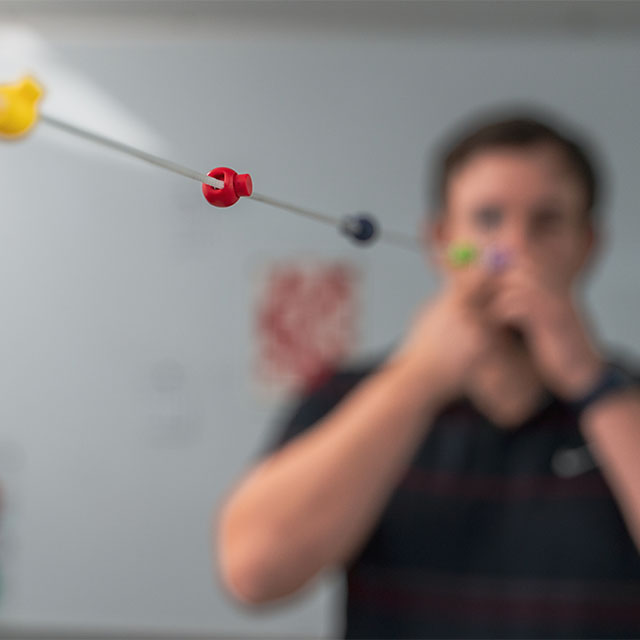Children's Eye Exams in Kelowna
Here in Kelowna, children’s eye exams are anything but ordinary. As a dedicated pediatric and vision therapy clinic, we’re passionate about getting kids the eye care they need. Dr. Capo has completed specialized training, including a residency in Pediatrics and Vision Therapy.
We’re passionate about giving kids the support they need to thrive.
That’s why we perform in-depth eye exams with a personalized approach. We want your child to feel comfortable and curious—because we love answering their questions and getting them involved with their eye care.

Vision Is More Than Seeing Clearly
Does your child avoid reading or skips lines frequently? Are they bumping into things or less than enthusiastic about sports? Do they struggle to concentrate in class?
Your child may have a vision problem but not realize what they see or feel is different from their peers. Your kid may think their vision is great, but an undiagnosed vision problem may be holding them back.
Read our Guide to Various Refractive errors in Children here.
When Should My Child Have An Eye Exam?
We recommend a first eye exam at 6 months and every year after. However, if you’re concerned about your child’s vision or eye health, schedule an appointment with our pediatric eye doctor in Kelowna, regardless of when they had their last eye exam.
Children with ADHD commonly experience visual problems – read more about in our blog. You may need to book your child with ADHD for an assessment.
Timely, appropriate care can make a big difference. We accept infants and kids of all ages for any eye emergencies.
Common Children's Vision Problems
Vision problems can cause a range of signs and symptoms. Blurry vision, tired eyes, and poor concentration can impact their behaviour, even when they don’t have the words to talk about what they’re experiencing.
An eye exam is an opportunity for kids to be seen and understood. We evaluate their eye health and vision, tailored to their age, abilities, and visual needs. If a problem is identified, we’ll recommend the next steps, including determining their glasses prescription or completing an in-depth visual skills assessment to develop a personalized vision therapy plan.
What To Expect During an Eye Exam With One of Our Pediatric Eye Doctors in Kelowna
If children are experiencing a vision issue, they are often unable to articulate the problem—they might not even know there is a problem. Unlike adults, children have not established a baseline of what proper vision looks like for them.
Kids can experience signs or symptoms that may not seem visual—like tiredness, poor concentration, or difficulty keeping their place while reading. They may develop vision problems standard glasses can’t correct alone, like strabismus (eye turn) or amblyopia (lazy eye), which can affect how their vision develops.
Bringing your child for regular eye exams lets us establish that baseline so we can take the time to evaluate their symptoms. By detecting vision problems early on, we can give them appropriate support—whether they need glasses or other personalized care. Book their appointment today!
During your child’s eye exam, Dr. Capo will perform a basic visual skills assessment, eye health evaluation, and dilated refraction test. Then, if an issue is detected, Dr. Capo will complete additional tests tailored to your child’s needs.
We always dilate children’s eyes during their initial appointment because it helps us get a more detailed evaluation. Kids can have strong focusing systems, but dilating the eyes (enlarging the pupil with eye drops) helps us determine their prescription more accurately.
Read our blog about Cycloplegic Refractions.
Special Needs Eye Exams
Patients with intellectual or developmental disabilities often have a higher rate of vision problems that go undetected and untreated. We’re committed to helping kids get the care they need, accommodating to help them feel comfortable, welcome, and safe.
Dr. Capo has experience working with kids who may be non-verbal or need to take each step at their own pace. She tailors their care to their needs and abilities, completing an in-depth assessment to prescribe appropriate eye care.

Book Your Child's Pediatric Eye Exam in Kelowna
From learning in school to communicating with family and friends, kids use their visual skills every day to connect with the world around them. That’s why our goal is to provide the support and care they need to thrive academically and in life.
We look forward to getting to know your one-of-a-kind kid and teaching them all about their vision! Book your child’s eye exam today.
What We Do

We're here to help your little one protect their sight for years to come. Look out for your kid's life-long vision with early eye care.

When the brain experiences trauma, visual processing may be disrupted. Specialized Vision Therapy treatment can help with your recovery.

Daily tasks can be difficult for a person with low vision. With a low vision assessment and function solutions you can still live your best life.

Vision therapy uses evidenced-based solutions & personalized care to improve visual function. Find out if your child's vision is working as it should.
